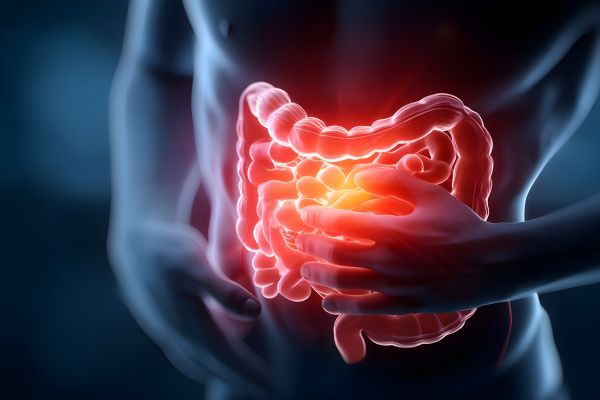
From the Desk of Carolyn Dean MD ND
I talk a lot about heart health in my blogs and books because heart disease is the world-wide top killer and we aren’t getting the whole picture. How can we make informed and safe health decisions without understanding what’s happening in the body? I don’t mean for that to sound like an insult. The fact is that your doctor may not have been taught explicitly about the processes in the body that rely on magnesium to function correctly.
As I mentioned, most doctors are unaware of the importance of magnesium in maintaining a healthy heart. If they studied magnesium, they wouldn’t have to invent calcium channel blockers. The fact is that magnesium IS a calcium channel blocker. Let’s unravel this medical mystery and provide you with the facts about calcium channel blockers.
What Dr. Google or an MD might say about calcium channel blockers (CCBs):
Calcium channel blockers are drugs that block excess calcium from entering heart cell and artery muscle cells. This class of drugs is prescribed to people with high blood pressure, chest pain, and abnormal heartbeats. They are said to be one of the most frequently prescribed medications for people with cardiovascular disease,s and they are considered to be low in side effects.
But when you look at the side effects, they include dizziness, fainting, headache, fatigue, and get this… chest pain and a fast or irregular heartbeat – exactly the symptoms these drugs are supposed to treat.
Calcium channel blockers lower the amount of calcium that enters your heart and blood vessels. Less calcium means less activity of the heart muscle cells, slows down the heart rate, relaxes and widens blood vessels, lowers blood pressure, and reduces chest pain.
Too much calcium
While calcium is necessary for the heart’s muscles to contract, excessive calcium causes unnecessary constriction and contractions, leading to irregular heartbeats. When there is too much calcium in the blood vessels, they constrict, which hampers blood flow and raises blood pressure.
Please note that there is no real explanation offered by Dr. Google that explains why you may have excess calcium that needs ‘blocking’. I will provide you with that explanation. Here’s the missing link: magnesium.
What I say about calcium channel blockers
The impulses for any movement in the body arise from electrical transmission. Calcium is vital for transmitting electrical impulses in nerve and muscle cells, including those in the cardiac muscle. Electricity in the cells was first measured in 1966 along with the discovery that a balance of calcium and magnesium is essential to maintaining the proper levels of calcium in the blood and the cells.
Soon after the first measurements of electrical impulses were made, and it became clear that a balance between calcium and magnesium was crucial, drug researchers began developing calcium channel blockers, which went on the market in the 1970s. Imagine if they’d spent the same resources studying the interaction between magnesium and calcium in relation to heart health.
What’s a calcium channel?
Calcium channels are found in cellular membranes throughout the body, including muscles, bones and the heart. They are pathways along which calcium travels to enter cells. Magnesium is on sentry duty in the calcium channels, only allowing a certain amount of calcium to enter the cells to create the necessary electrical transmission or muscle firing. Once the calcium has done its work, magnesium then ejects the calcium from the cells. Otherwise, calcium will accumulate in the cells, causing hyperexcitability and eventually calcification that disrupts cell function. Too much calcium entering cells can cause symptoms of heart disease (such as angina, high blood pressure, and arrhythmia).
As you can see, magnesium is naturally (and without drugs) designed to block too much calcium from entering the cells. Magnesium IS a calcium channel blocker. It follows logically that if someone is experiencing symptoms of heart disease like chest pain, high blood pressure, and arrhythmia, it’s occurring because of an imbalance of calcium and magnesium.
However, doctors don’t typically discuss calcium and magnesium when they hear about heart pain, high blood pressure, and arrhythmia, because they often have a prescription pad to offer calcium channel blockers. And because they never learned about minerals in medical school! Actually, they did know about calcium and began recommending it to women over 40 to protect their bones. That itself led to the increase in heart disease in women because it caused calcification.
Doctors certainly are not aware that calcium channel blocking drugs drain the body of magnesium, making their patients even more vulnerable to heart problems.
What you can do instead
Here are the key supplements I recommend for heart health and blood pressure (from my earlier blog on Heart Health):
Vitamin C and Magnesium
Specifically, for heart health and high blood pressure, vitamin C improves vascular integrity because of it helps produce collagen, a major component of blood vessels. Weak blood vessels can lead to the breakdown of artery walls or, in extreme cases, the formation of an aneurysm. Weak blood vessels can develop tears that are then patched up with cholesterol. Excess calcium, riding around in the bloodstream because there isn’t enough magnesium to keep calcium soluble and focused on the bones and teeth, will precipitate onto these cholesterol patches and cause plaque. I recommend food-based Vitamin C as well as ascorbic acid. Picometer magnesium not only prevents calcium from building up inside cells, but it also helps produce elastin, which works alongside collagen to make arteries more flexible.
Potassium
Potassium is a cousin of magnesium, and they work together to help mutual absorption and function. We are eating less vegetables and fruits of late because of the popularity of the Keto, Paleo, and Carnivore diets, so we need to take picometer potassium.
Omega-3 fatty acids
Omega-3 fatty acids help make our cell membranes into the impervious coatings that they should be. Omega-6 vegetable oils undo all that, leaving us with leaky cells. We work with an Omega-3 algae that also contains vitamins A and E, which are essential for heart health.
Methylated B Vitamins
Vitamins B12, B6, and Folate are methylated and break down and eliminate homocysteine, which is detrimental to heart health.
The best way to proceed is to contact our Customer Experience Team to help establish a healthy protocol that you can rely on.
Carolyn Dean MD ND
The Doctor of the Future



